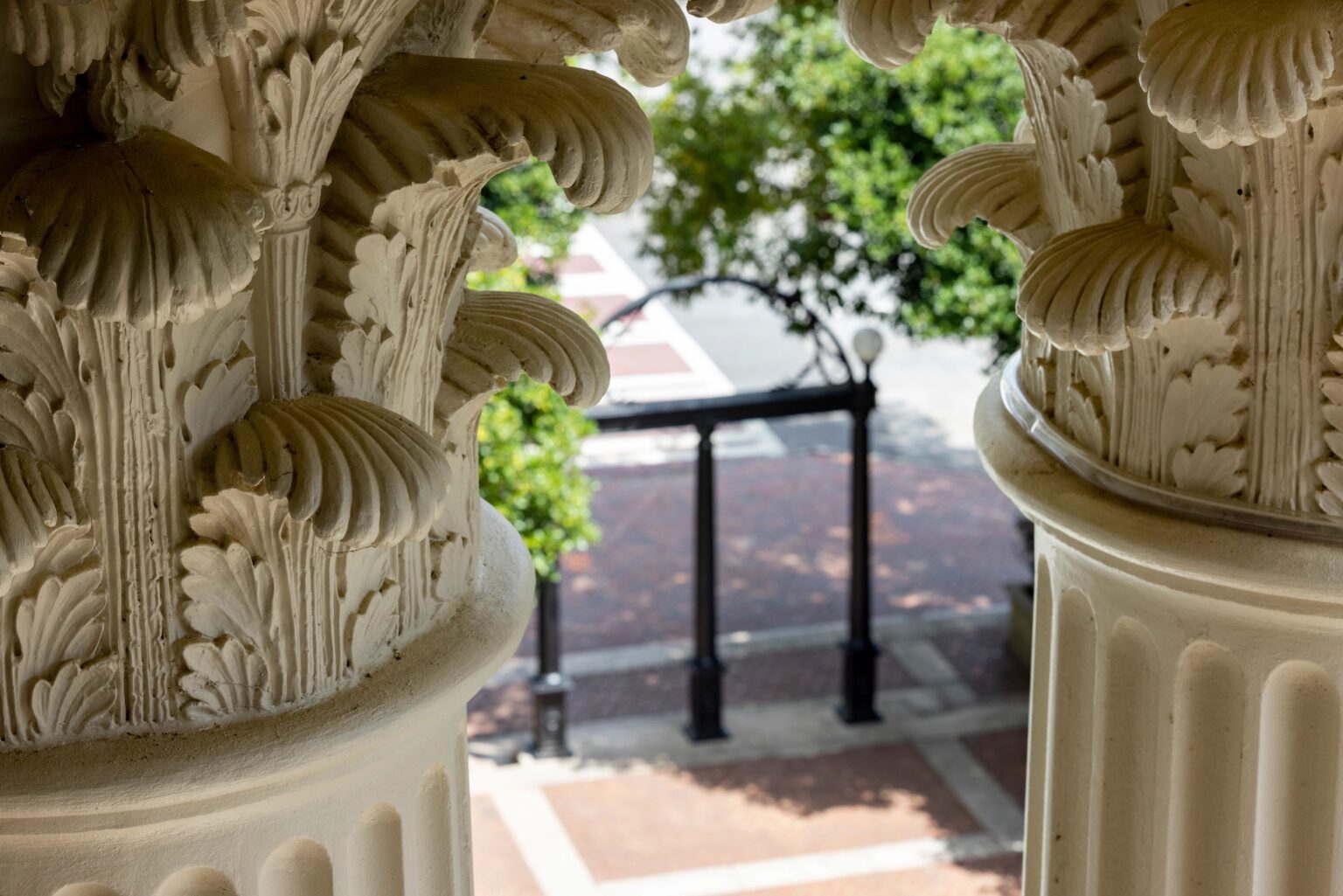Five University of Georgia faculty will receive the prestigious D.W. Brooks Award for Excellence in Public Service Oct. 2 in Athens, Ga.
The $5,000 annual awards recognize UGA College of Agricultural and Environmental Sciences faculty who excel in teaching, research, extension and international agriculture.
The 2000 winners are Michael Dirr, teaching; John Ruter, research; Steve L. Brown, extension; Eddie McGriff, county extension programming; and Manjeet Chinnan, international agriculture.
The CAES sponsors the annual lecture and awards in memory of D.W. Brooks, founder and chairman emeritus of Gold Kist, Inc., and founder of Cotton States Mutual Insurance Companies. Brooks was an advisor on agriculture and trade issues to seven U.S. presidents.
William F. Kirk, group vice president of DuPont Biosolutions Enterprise will deliver the 2000 D.W. Brooks Lecture, "The 21st Century -- an Agricultural Odyssey," before the awards ceremony. The lecture is scheduled for 11 a.m. in Mahler Auditorium of the Georgia Center for Continuing Education.
The Winners
Dirr, a horticulture professor, was cited for his encyclopedic knowledge of woody ornamental plants. His text, Manual of Woody Landscape Plants, is used in more than 90 percent of landscape materials classes taught in the United States.
He is widely recognized as a preeminent expert in the landscape industry. He was instrumental in establishing the UGA Campus Arboretum and in preparing materials for the Walking Tour of Trees.
Ruter, a professor of horticulture and a researcher at the CAES Coastal Plain Experiment Station in Tifton, Ga., was honored for his contribution to Georgia's container and field nursery industries. He developed a nursery crop production research site which as become a design model for the industry.
Ruter is a national leader in developing improved fertilization and irrigation strategies for the container nursery industry. The importance of the research is magnified by environmental concerns about nutrient concentrations in runoff water. His research in slow-release fertilizer formulations will save an estimated 30 million pounds of fertilizer use in Georgia alone.
Brown, an entomology professor and extension specialist, is a widely recognized expert in the integrated management of pests in peanuts and stored products. He was instrumental in finding a solution to one of Georgia peanut producers most damaging diseases - tomato spotted wilt virus.
He developed the University of Georgia Spotted Wilt Risk Index, a planning tool that assesses the risk of peanut growers' practices. Using hundreds of on-farm observations, the index is refined each year. Economic analysis of the risk index shows that it increased growers' net return per acre between $133 and $280 per acre in 1998.
McGriff was cited for his leadership in one of the most agriculturally diverse counties in the Southeast. In 1999, farm income in Decatur County was more than $170 million, with an economic impact of almost half a billion dollars.
His reputation reaches beyond the U.S. borders. He led peanut tours in Australia and Argentina and has been consulted about peanut production problems in those countries, as well as in Mexico and Azerbaijan. He was part of a team of agricultural agronomists and economists to help during the North Korean famine.
Chinnan is a professor of food science and technology, and biological and agricultural engineering. He is an internationally recognized authority on processing, handling and storing peanuts, cereal legumes, fruits and vegetables.
His leadership in networking with international scientists in the Caribbean and Central America led to 10-year project with post-harvest handling of peanuts. The group continues to develop projects in Bulgaria, the Philippines and Ghana.






